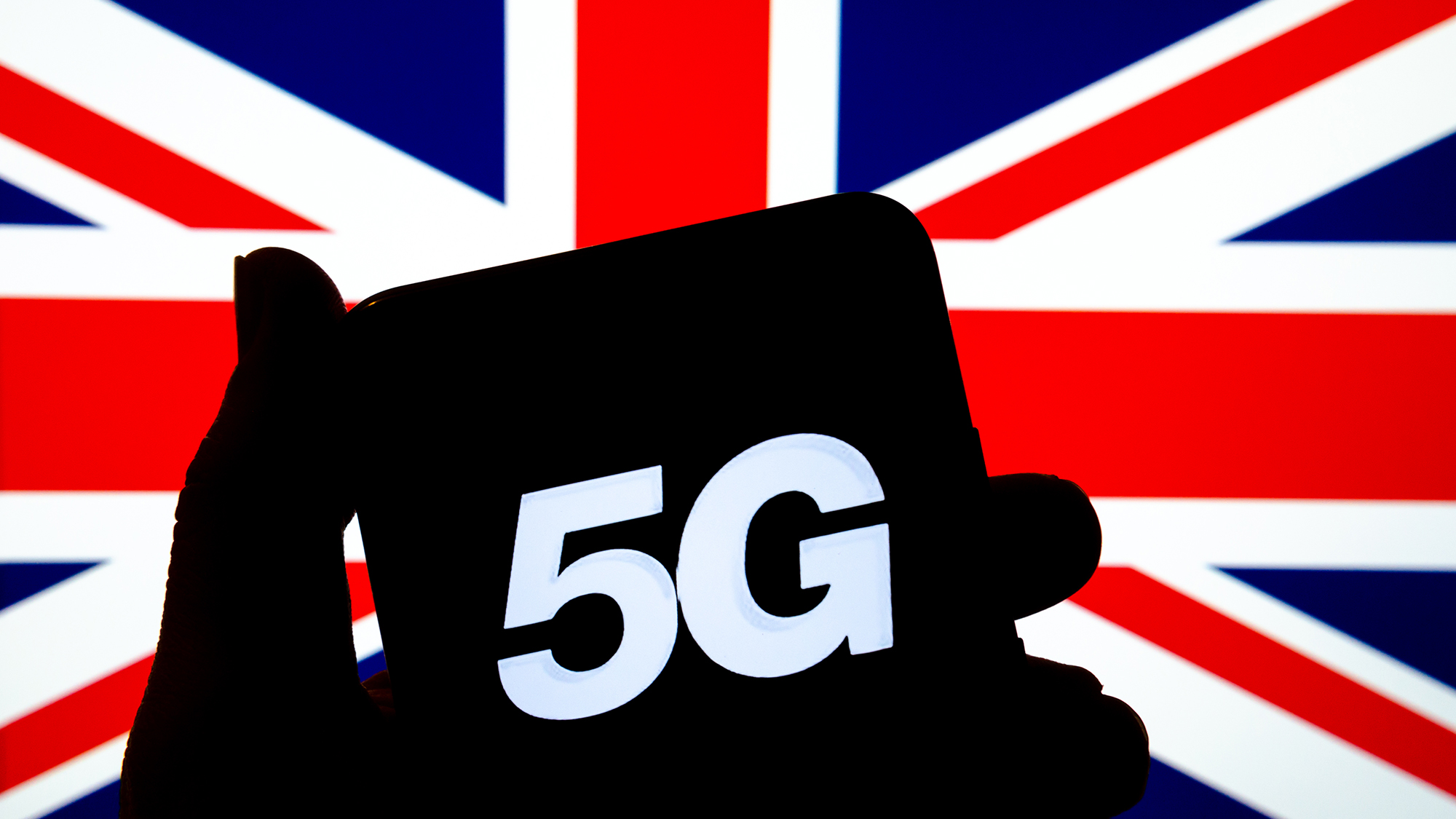General Election 2015: How the parties' tech policies could change the UK
Part One: Broadband, SMBs and education

PART ONE
With just weeks to go until the 2015 general election, the politicians have made their pledges and appeared or not appeared on national TV to make their case for leading Britain for the next five years.
But what role will technology play in transforming society over the coming half-decade?
Whether you're an SMB, a developer, a government supplier, or someone concerned about their privacy, most parties have something to say that you'll want to hear.
We examine and compare the key tech policies of the parties appearing on your electoral ballot, to help you decide who you wish to vote for come May 7.
This is Part One of our general election analysis. You can read Part Two here.
Broadband
Despite Sir Tim Berners-Lee inventing the internet two decades ago, broadband coverage across much of the UK remains patchy.
Get the ITPro daily newsletter
Sign up today and you will receive a free copy of our Future Focus 2025 report - the leading guidance on AI, cybersecurity and other IT challenges as per 700+ senior executives
The coalition government set about trying to rectify this with a scheme called Broadband Delivery UK, which promises superfast broadband coverage of 95 per cent of the UK by 2017.
So far two million UK homes or offices are connected, and 40,000 are being upgraded each week, Prime Minister David Cameron's party claims reiterating its 95 per cent coverage pledge.
The 790 million pound roll out is in the hands of BT, which has aired doubts over whether it will meet the deadline, however.
But the party's efforts in the coalition government saw mobile operators agree to end mobile not-spots' by coughing up cash to ensure 90 per cent of the UK will have voice and text coverage by 2017.
The manifesto read: "We will hold the mobile operators to their new legally binding agreement."
It added: "We will ensure that Britain seizes the chance to be a world leader in the development of 5G, playing a key role in defining industry standards."
Under BDUK, the Tories plan to explore how to reach "near universal" superfast broadband across the UK by 2018, despite how silly that sounds.
Comparison site Cable.co.uk's telecoms expert Dan Howdle says the Tories are hiding their aims in "technological fluff".
"Since a person, party or community will no more be able to accuse the government of breaking its manifesto pledge than they will to define exactly what was meant by 'near universal' in the first place, it promises nothing tangible," he claims.
Labour
Labour wants to provide full coverage of high-speed broadband by 2020, cutting out mobile not-spots' to connect the remotest parts of the UK.
It will work with comms regulator Ofcom as well as telcos to achieve this, in he hope of driving up private sector investment in better mobile infrastructure.
Cable.co.uk's Howdle adds that Labour's ambitious 100 per cent coverage goal is "impracticable", though, claiming: "[It] seems to me to take no account of the scale of engineering, geographical and budgetary challenges such an undertaking would demand."
Lib Dems
Nick Clegg's party is offering 99.9 per cent coverage by the end of 2020, falling closer to Labour's end of the spectrum than the Tories'.
But Andrew Millard, senior director of marketing at Citrix, says SMBs will be disappointed at the lack of detail on how parties plan to tackle not-spots.
He says: "Small and medium businesses want to know the where and how what parties will do to tackle rural not-spots, not simply that it's coming."
Green Party
The Greens would "oblige" telcos to provide high-speed broadband to every home and small business in the UK.
UKIP
No broadband policy.
Verdict
There's really not that much difference between any of the parties' approaches on broadband (excluding UKIP, who seem to have forgotten about it), which is a good thing. Whoever wins the election will understand the importance of ubiquitous internet access and the economic advantages it would bring.
However, there's very few details on anything: they fail to mention specific measures they would take to achieve wider provision, while Labour's strategy of working with Ofcom and the private sector is much the same as the coalition's.
SMBs and start-ups
Conservatives
Business-friendly Tories promise to swing the axe at any red tape preventing the UK from becoming the technology hub of Europe by 2020 but precisely what that red tape comprises hasn't been made clear.
It will also triple its Start Up Loans programme, lending cash to 75,000 entrepreneurs hoping to start their own businesses.
In government, the party has also helped small businesses by upping the Annual Investment Allowance to 500,000 though it's due to drop to 25,000 in January 2016.
Claims over late payments, which can be especially damaging to SMBs, may be mediated by a Small Business Conciliation service under a Tory government.
Additionally, the Conservatives will lift government's IT procurement targets from a 25 per cent spend on SMBs to a one-third spend.
Labour
Ed Miliband's party will give small businesses tax cuts in the form of reduced business rates.
"These moves are welcome," entrepreneur advocate group Coadec said. "But we would argue the focus shouldn't be on small business' but on high growth small businesses, including digital start-ups, as this is where the greatest macroeconomic value is added."
SMBs are set to get more investment under Labour, too, with the creation of the British Investment Bank if the party wins a majority on 7 May.
It will seek to improve access to finance for SMBs by supporting a network of regional banks.
The party hasn't outlined a target SMB spend when it comes to government procurement, and has aired support for outlay on both SMBs and Big IT companies.
Tech industry trade body TechUK's CEO, Julian David, said: "We are pleased that the Labour manifesto recognises the need to build on the UK's strengths."
Steve Richards, senior adviser at consulting firm Hanover, adds: "A reference to robotics, genetics, 3D printing and Big Data reveal an ambition to confront new technologies and prepare Britain for the future."
Lib Dems
The Lib Dems are more vague simply promising to continue working to open up procurement to SMBs.
However, they would seek to establish a British Business Bank to tackle the lack of equity capital for start-ups and entrepreneurs.
The party would double innovation spending in the economy, targeting digital industries for growth.
However, Hanover's Richards points out this pledge is subject to support from businesses.
He says: "The idea of doubling innovation spending across the economy is only an aim, not least because this is also dependent on securing private sector input."
There are also plans to build on London's Tech City, and other tech clusters such as Cambridge's, to create a network of such scenes acting as incubators for tech talent and businesses around the UK.
By supporting fast-growing businesses, the Lib Dems hope to create one million jobs over 20 years.
Green Party
The Greens wants to make it easier for small businesses to employ people, using a wealth tax to reduce their National Insurance contributions.
It would keep corporation tax for small firms at 20 per cent, but raise large firms' to 30 per cent, while tackling late payments that harm SMBs.
UKIP
Nigel Farage would cut business rates by 20 per cent for firms with a rateable value of less than 50,000.
His party would also make it easier for SMBs to bid on public service contracts the manifesto doesn't detail how, though.
Verdict
SMBs face many challenges in business, and measures to tackle late payments will be welcomed a delay in receiving money for a completed contract can be the difference between paying the bills and going bankrupt for many small firms.
The Tories aim to up government spending on SMBs sound promising, but it should be remembered that the coalition recently claimed to hit its 25 per cent spend target a year early, only to count indirect spend (that goes through big firms) towards that goal, while direct spend fell.
Equally, the Lib Dems' doubling of the innovation pot is an encouraging sign, but how a government could dictate how companies spend their cash remains to be seen.
The party's commitment to build on the UK's tech clusters is incredibly important in strengthening the tech sector outside of London and a few areas like Cambridge.
Education and skills
Most parties appear to recognise the ever-widening tech skills gap, and have outlined measures to narrow it.
Conservatives
The Tories have already spent 20 million trying to plug the gap with IT degree apprenticeships during the coalition, as well as introducing a computer skills-focused curriculum.
Back in power, they would train another 17,500 maths and physics teachers.
Labour
Miliband's bunch was surprisingly quiet on digital skills, but does want to make sure everyone has a basic understanding of how to use a computer, to help people apply for jobs and get online.
The party will also introduce a Technical Baccalaureate and new Institutes of Technical Education to train 16 to 18-year-olds in high-level tech skills.
Lib Dems
Along with the other parties, the Lib Dems will promote the uptake of STEM subjects, but also include one science specialist teacher on all primary school staff rosters.
When it comes to the skills gap, the Lib Dems would expand the number of foundation degrees, Higher National Diplomas, Higher National Certificates and Higher Apprenticeships to create more technically-skilled specialists.
Green Party
No direct policy addressing the tech skills gap, nor uptake of STEM subjects.
UKIP
The right wing party would waive tuition fees for science, technology, engineering, mathematics and medicine (STEMM) subjects at university.
Verdict
All parties except for the Greens have committed to a focus on these key subjects this should increase the number of maths and science specialists we have, but not for a long time.
The Conservatives deserve credit for their drive to revamp the way computer skills are taught in schools, putting more value on coding over operating Excel, and the party is underpinning a real drive to reduce the skills gap.
TechUK CEO Julian David welcomes the main three parties' commitments, saying: "It's right that parties recognise the importance of having the right skills and expertise to maximise the potential of tech across the UK."
-
 Should AI PCs be part of your next hardware refresh?
Should AI PCs be part of your next hardware refresh?AI PCs are fast becoming a business staple and a surefire way to future-proof your business
By Bobby Hellard Published
-
 Westcon-Comstor and Vectra AI launch brace of new channel initiatives
Westcon-Comstor and Vectra AI launch brace of new channel initiativesNews Westcon-Comstor and Vectra AI have announced the launch of two new channel growth initiatives focused on the managed security service provider (MSSP) space and AWS Marketplace.
By Daniel Todd Published
-
 AWS expands its public sector startup accelerator to Japan
AWS expands its public sector startup accelerator to JapanNews Fledgling companies in nine APAC countries can now apply to be part of the AWS Startup Ramp programme
By Zach Marzouk Published
-
 HPE inks $2 billion high-performance computing deal with the NSA
HPE inks $2 billion high-performance computing deal with the NSANews HPE will provide scalable on-premises computing to the NSA using Greenlake
By Danny Bradbury Published
-
 BT's 'SoHo' business aims to help SMBs rebuild post-pandemic
BT's 'SoHo' business aims to help SMBs rebuild post-pandemicNews The spin-off will offer broadband packages, free digital skills training and cyber security tools to SMBs and startups
By Sabina Weston Published
-
 Can the UK develop a 5G giant to take on Huawei?
Can the UK develop a 5G giant to take on Huawei?In-depth Things aren’t easy for Huawei at the moment, but its woes could be someone else's opportunity. Is it time for the UK to develop its own 5G giant?
By Nicholas Fearn Published
-

 Zoho Assist review: Basic budget brilliance
Zoho Assist review: Basic budget brillianceReviews An uncomplicated cloud-hosted remote control service that’s great value and very easy to manage
By Dave Mitchell Published
-
 How to pick the best NAS for your small business
How to pick the best NAS for your small businessTutorials NAS appliances can help you grow your business - here's what you should look for
By Dave Mitchell Last updated
-

 HPE ProLiant MicroServer Gen10 review: Small in size, large in power
HPE ProLiant MicroServer Gen10 review: Small in size, large in powerReviews It's small, but HPE's ProLiant MicroServer Gen10 stands head and shoulders above the rest
By Dave Mitchell Published
-

 Acronis Backup 12.5 review
Acronis Backup 12.5 reviewReviews Acronis has every backup base covered with a huge platform support, easy management and valuable ransomware protection
By Dave Mitchell Published